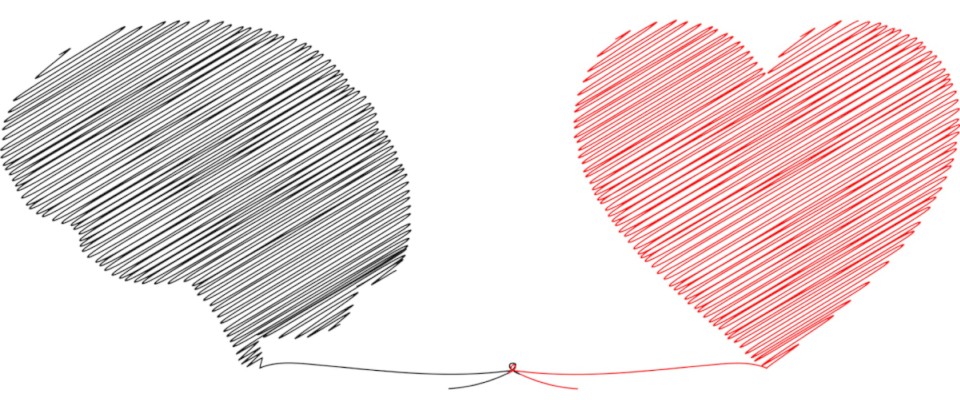I recently came across the term “comfort addiction.” Unfortunately, I don’t remember exactly where—it might have been in Anne Helen Petersen’s recently published book “Can’t Even.” The image is very simple: through mostly technological, and partly sociological, innovation, we have become so used to our environment behaving in predictable, familiar ways that we feel overwhelmed if things “go wrong.” We crave feeling secure and safe, maybe more so than any generation before us.
In a recent conversation between Jordan Peterson and Iain McGilchrist, they triangulate on the nature of the very problem that is created by “too strongly desiring the feeling that comes with the certainty of knowledge.” Similar to every animal, our nervous system needs to solve two fundamental problems: making the world graspable, ready to be engaged through intentional action—such as seeking food or shelter by known means—while at the same time remaining open and vigilant to the unknown, at every level of experience.
How does this matter?
Much of our culturally mediated education, in the home, in schools, and later in college or at work, seems to be aimed primarily at improving our capacity to engage with the world as a knowable and known set of objects and relations. Pretty much every subject in school that I can remember—besides maybe my arts classes— presented knowledge as something that can be studied and absorbed, and once it can be reproduced flawlessly, it can be considered as mastered.
But that is not how life works at the most fundamental level. If it did, one would assume that a culture that has at its disposal greater knowledge than ever, more discovered territory that people have at their fingertips—think of the ultimate version of Google that can answer any question to a problem already encountered and solved—would be content and free from anxiety. Yet it seems that the opposite is the case.
Life, the experience of humans as they go through their daily routine, appears not to become more manageable or enjoyable with every bit of knowledge we absorb, but increasingly less so. My suspicion is that part of the dilemma we are facing stems from an almost dogmatic belief that discovering the mechanistic laws of reality—through the sciences of physics, chemistry, biology, psychology, and sociology, say—will put us into a position of increased control.
Objectively speaking, this may even be true. We really can shape our environment in ways completely unavailable to prior generations. On the flip side, this has done nothing to make us feel less anxious. Quite the contrary… And if I understood McGilchrist’s take on things correctly, it is precisely because of our knowledge, as much as it may bring certain aspects of reality under our control, we pay the cost of losing touch with the bigger picture.
To the extent that we fall into the trap of seeking comfort in our ability to control reality at one level, we forget how everything being interrelated will always nip our own plans of comfort in the bud because this kind of knowing, by definition, must exclude important parts of reality for abstraction’s sake.
Take any relationship you are in, either privately or at work. The more you think you know how someone will react to something you do, the more you might be tempted to anticipate their behavior and plan accordingly. The more certainty you display in dealing with the relationship, the more closed and tight will it appear to the other person. This creates an almost irresistible counter desire to escape from that prison of being pre-judged, since control is only positive if is it exerted by one-self, not if it is experienced exerted on one-self.
So, what’s the alternative? My intuition tells me we need to lean into discomfort. Acceptance of our inability to know and control both frees us from the potential prison our desire for control creates, and it provides the seed of courage. The courage for adventure, to plot a course into the unknown, to redevelop a child-like curiosity for detail, for nuance, and for seeing things as they are, rather than as what we expect them to be.
And, yes, that is highly uncomfortable. Everything you believe you know, you feel so certain of, might turn out not to be as solid as you wish it to be. With that fundamental earthquake going on in one’s soul, I would also suggest to move slowly and cautiously towards the unknown.
In another conversation I thoroughly enjoyed, David Fuller together with Arran Rogerson and Alyssa Polizzi explore how the current moment in human history allows us a glimpse into the many unexplored layers of our psyche. Much of what makes humans tick, under the hood, below the level of what we can verbalize as beliefs and knowledge, is coming to the surface through new technologies. And I believe that only if we are willing to look into the discomfort of what this reveals will we be equal to the task of being fully human.
Letting go of the certainties we feel technology, culture, society, and reverse psychologizing people provide us with is daunting. Yet I see little alternative besides looking into the unexplored abyss that is life, and doing so with an attitude of faith and courage.
